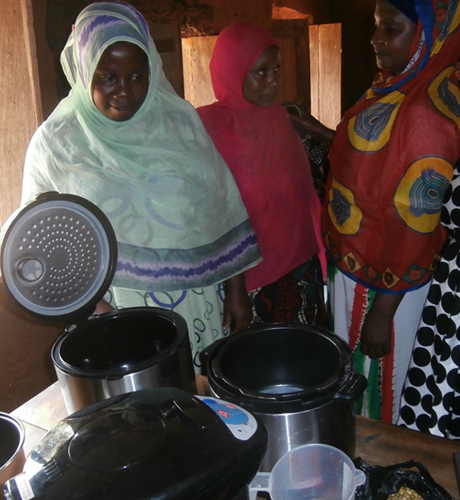Modern Energy Cooking Services
Professor Ed Brown and Dr Richard Blanchard - Geography and Mechanical, Electrical and Manufacturing Engineering
Energy
The WHO estimates that household air pollution from cooking with traditional solid fuels contributes to almost four million premature deaths every year; with non-renewable wood fuels creating a gigaton of CO2e in the same period.
A substantial body of work - by colleagues within Geography and Environment - underpins the Department for International Development (DfID) decision to award the University £38 million to lead a collaborative five-year project developing modern energy cooking services (MECS) that could save lives, enhance quality of life and reduce harmful emissions.
The partnership comprises seven UK universities and international partners, including the World Bank. As well as developing holistic technical solutions to allow people to cook cleanly and safely, the researchers are exploring effective economic and business models, environmental evaluations and the social implications of the transition.
The cooking diaries and pilot trials already completed have provided invaluable data – about the technical and social impacts of the development – that will help to guide ongoing work.

This collection of field-tested evidence is crucial for convincing decision-takers and policymakers to manage the investments and institutional changes needed to effectively and affordably accelerate the transition.
More importantly, perhaps, the project will explore how best to make modern cooking technologies acceptable to the communities that could most benefit from them. Ed Brown describes the project as “a massive opportunity to improve the lives of people across the globe.”
Find out more about the work and its impacts by visiting the project website.